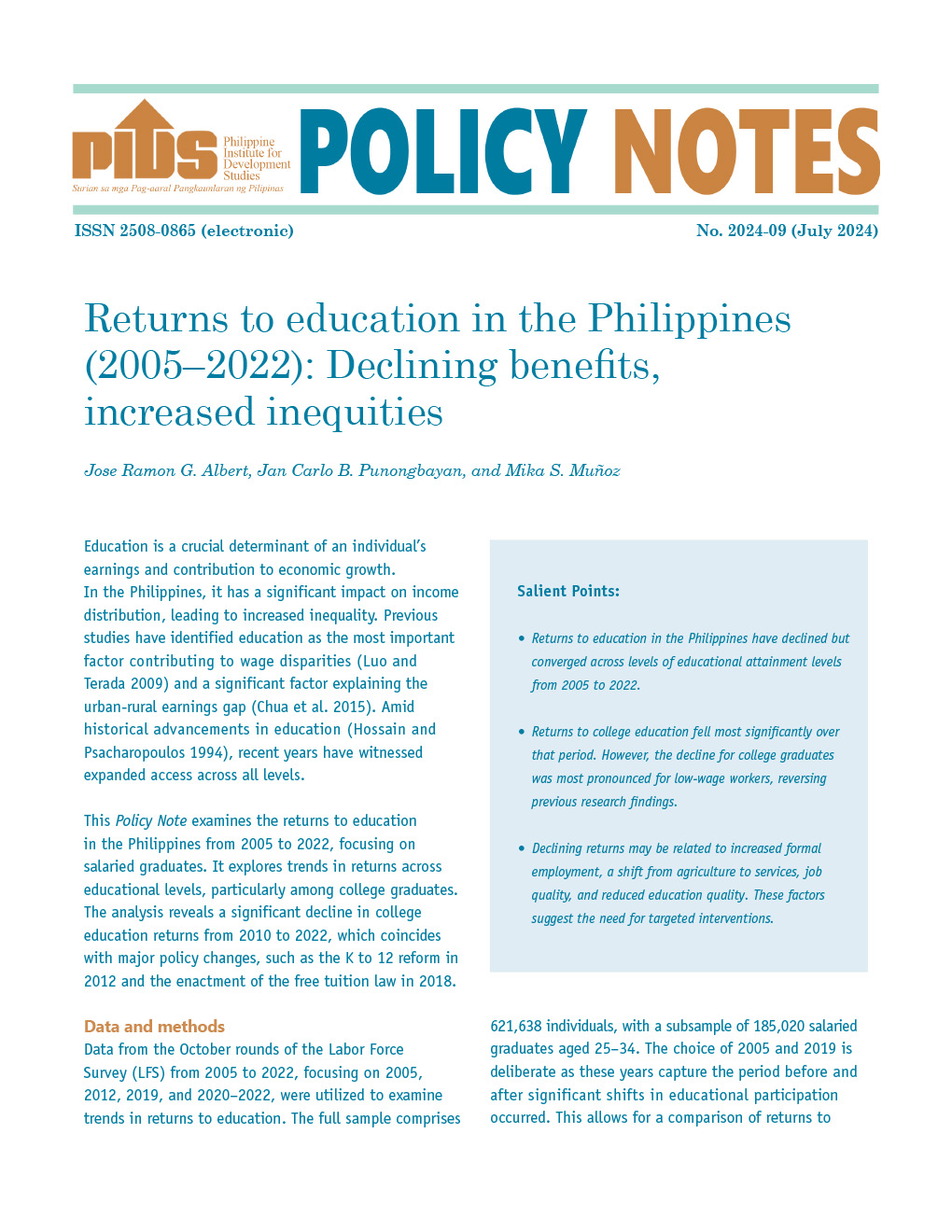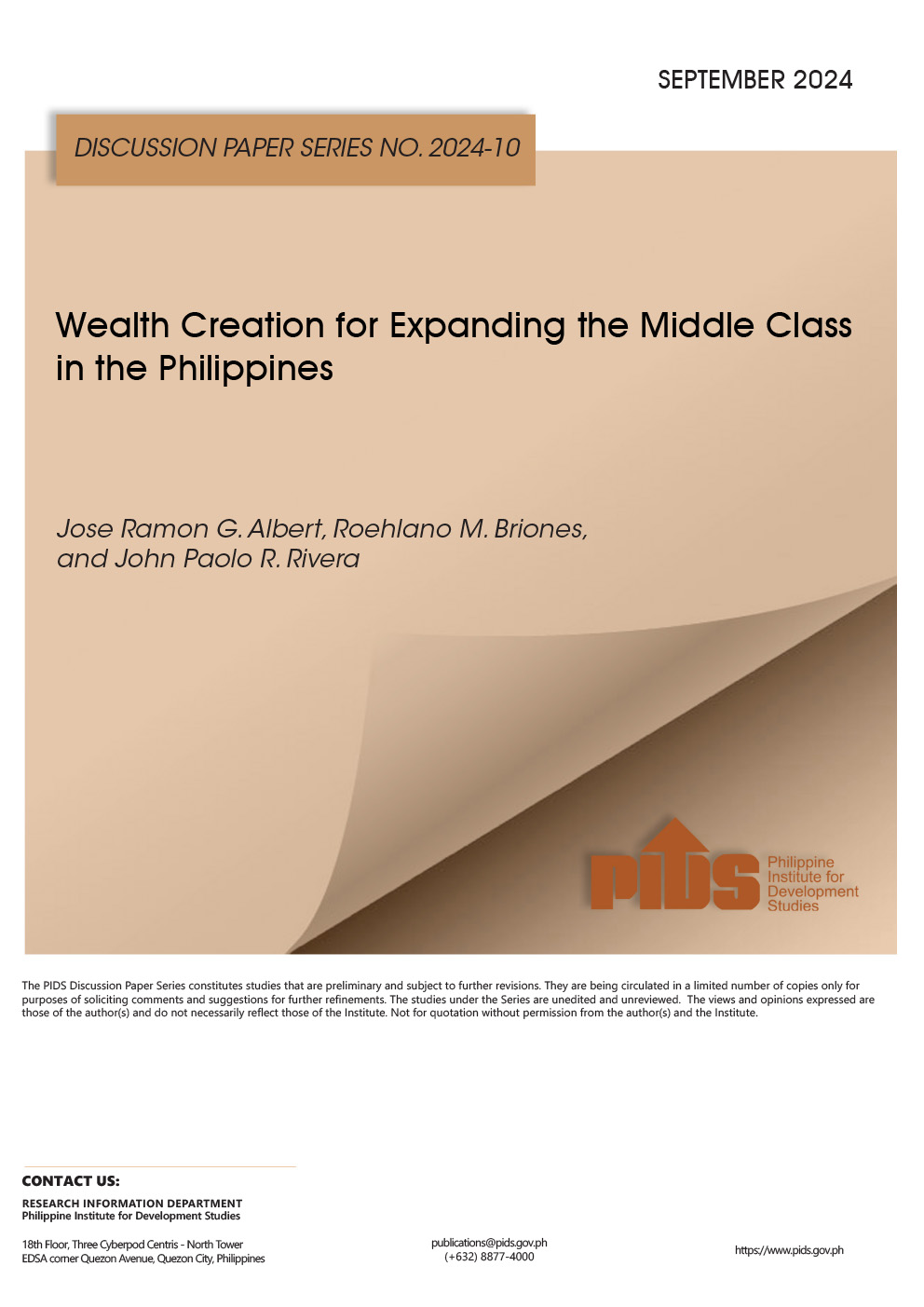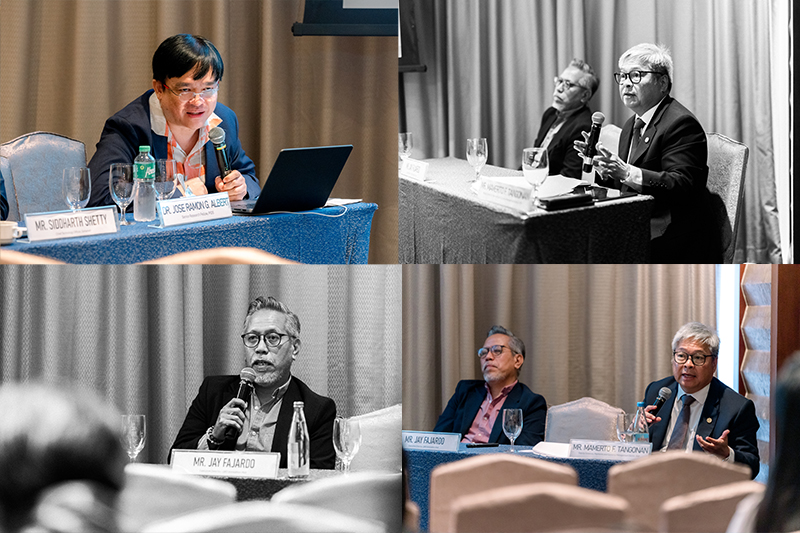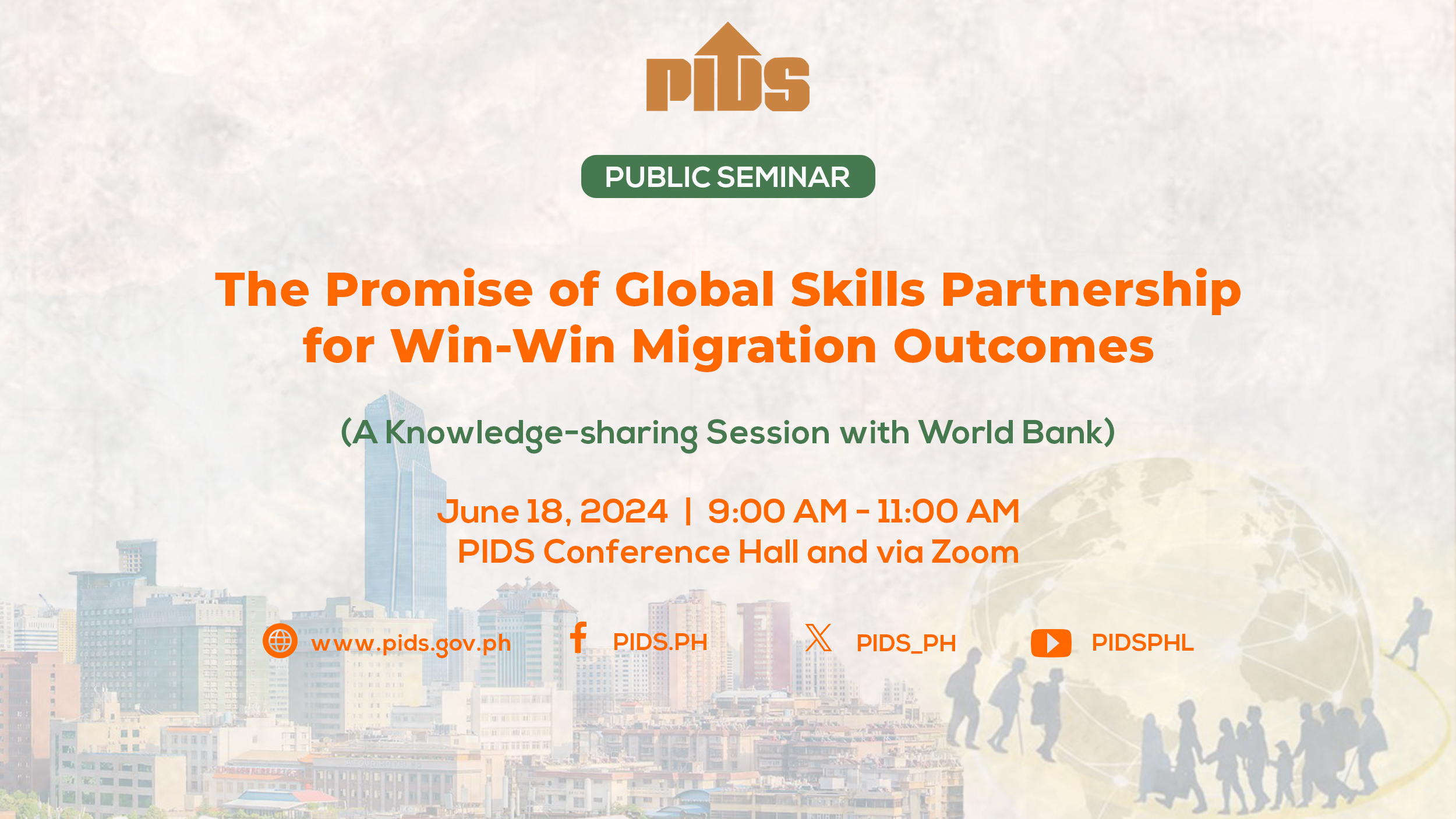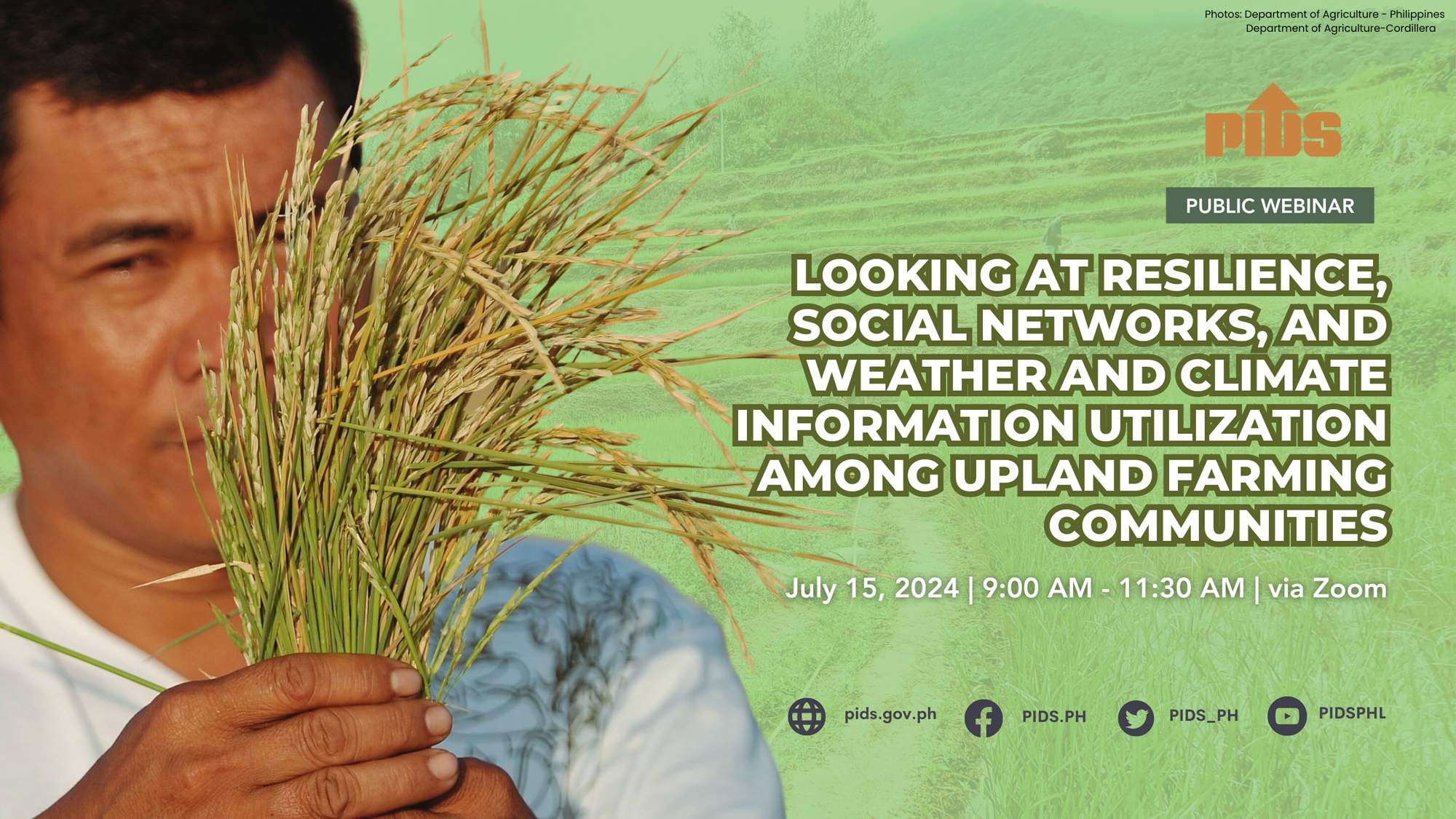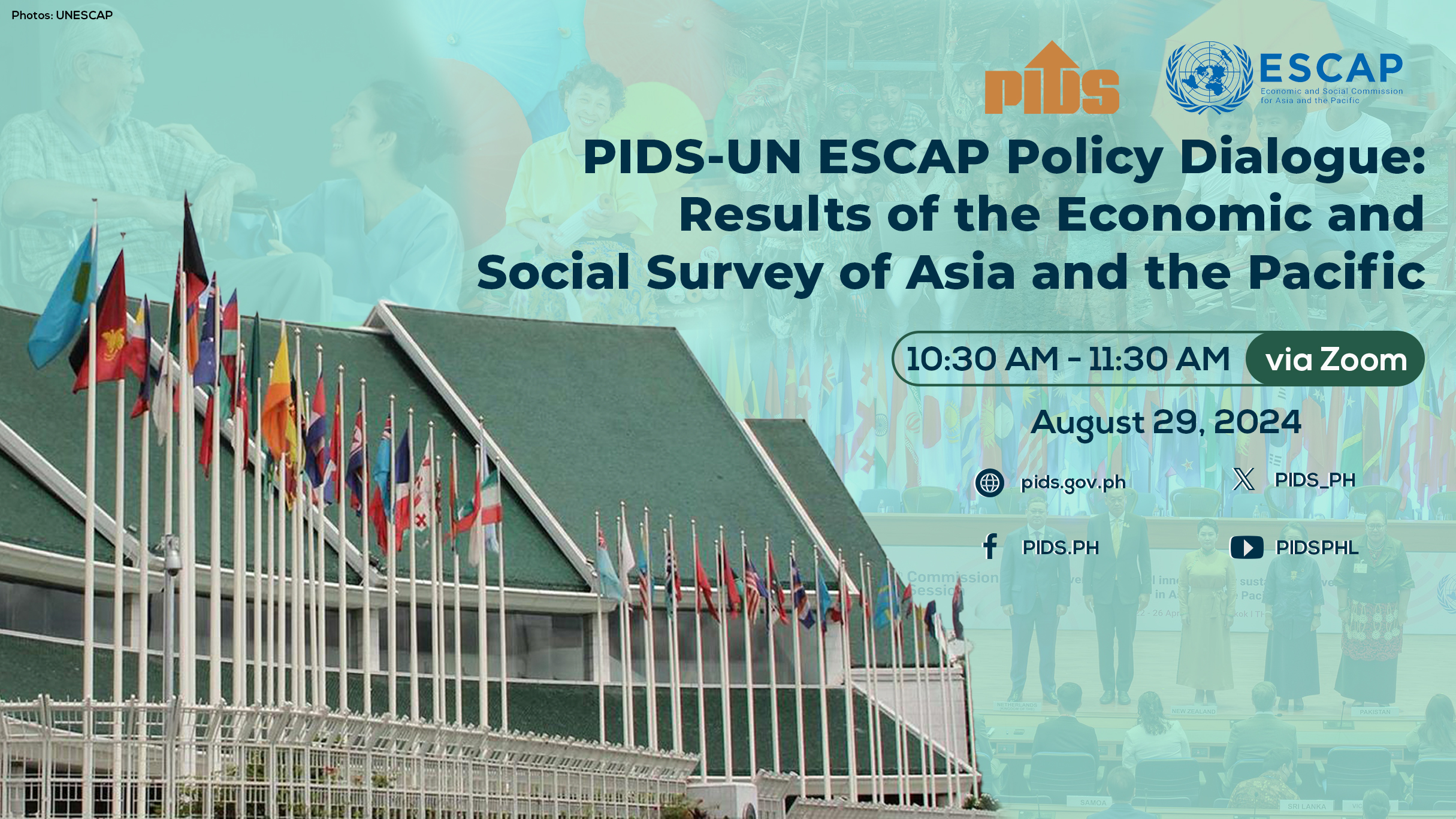In his fourth year in office, while President Rodrigo Duterte signed a law that will provide a wage hike for civilian employees of the government, he still failed to end labor contractualization in the country.
Considered a landmark achievement of his administration in the social services sector is the signing of the Salary Standardization Law of 2019. Yet the Act that would’ve secured the tenure of workers and free them from the uncertainty of job-contracts remains a long standing promise. After he vetoed the law in July last year, new bills on it have been filed in the Congress ever since, but all of them still have a long way to go.
But he was also able to finally fulfill a number of his other promises, like the successful passage of a law creating a national academy for sports, and a measure expanding Malasakit Centers all over the country that would be of assistance to poor Filipinos in need of medical help.
The government also launched a number of social service programs in response to the current COVID-19 pandemic. One of which is the Social Amelioration Program (SAP) mandated by the Bayanihan to Heal as One Act to provide 18 million low-income families with cash assistance of P5,000 to P8,000 a month for two months.
As of July 20, the Department of Social Welfare and Development has already distributed P24.4 billion worth of subsidy to around 3.5 million families for the second tranche of the program.
In terms of COVID-19 testing, data from the Department of Health (DOH) show that 1.1 million individuals have been tested as of July 21. There are currently 91 licensed COVID-19 testing laboratories in the country.
Despite these efforts, the number of positive COVID-19 cases in the Philippines continues to rise, with over 72,000 accumulated cases as of July 22. 1,843 of this number were deaths.
Find out how Duterte has fared for the rest of his promises on social services.
PROMISE: Establish National High School for Sports
“For our national sports development, I support the proposed measure to create the National Academy of Sports for High School students.” (SONA 2019)
Just last June 9, Duterte signed into law Republic Act (R.A.) No. 11470 which mandated the creation of a “national sustainable sports program” to be called the National Academy of Sports (NAS) System. The program aims to promote sports to the Filipino youth and provide training that will later on “produce world-class athletes.”
Section 5 of the law sets the academy’s main campus to be built at the New Clark City Sports Complex in Tarlac. The complex served as one of the venues for the 30th Southeast Asian games in 2019.
The NAS System will be operating as an attachment of the Department of Education in coordination with the Philippine Sports Commission.
PROMISE: Grant more benefits for solo parents
“Additional benefits for solo parents, the assignment of health workers in all barangays, and the expansion of the Malasakit Centers, are what we also hope to achieve through the bills filed by the original concept of Bong Go. Para manalo sa kampanya, ‘yon ang mantra niya. Totohanin mo lang, Bong, mapahiya tayong lahat.” (SONA 2019)
Senate Bill (SB) No. 1411, or the “Expanded Solo Parents Welfare Act of 2020,” is currently pending second reading in the Senate. It is a consolidated version of similar bills filed by Duterte’s former aide Sen. Cristopher Lawrence “Bong”Go, Senate President Vicente “Tito” Sotto III, and five other senators.
SB 1411 seeks to amend the existing Solo Parents’ Welfare Act of 2000 to give solo parents additional cash assistance, parenthood and livelihood training, work leave privileges, counseling services, and scholarships for pursuing higher education, among others.
The last activity on it were interpellations delivered by Senators Pia Cayetano, Win Gatchalian, and Sonny Angara last May 13.
SB 1411 has 20 counterpart bills in the House of Representatives, all of which are pending at the committee level.
PROMISE: Expand Malasakit Centers
“Additional benefits for solo parents, the assignment of health workers in all barangays, and the expansion of the Malasakit Centers, are what we also hope to achieve through the bills filed by the original concept of Bong Go. Para manalo sa kampanya, ‘yon ang mantra niya. Totohanin mo lang, Bong, mapahiya tayong lahat.” (SONA 2019)
Duterte signed into law R.A. 11463, or the “Malasakit Centers Act,” last December. It mandates to put up Malasakit Centers, a pet project of Sen. Bong Go that began when he was still Duterte’s aide, in all government hospitals. The centers serve as a “one-stop-shop” to help patients, especially those who are indigent or financially incapacitated, to seek medical and financial assistance.
There are currently 74 Malasakit Centers nationwide, the latest one launched in Sorsogon City on July 8.
PROMISE: Assign health workers in all barangays
“Additional benefits for solo parents, the assignment of health workers in all barangays, and the expansion of the Malasakit Centers, are what we also hope to achieve through the bills filed by the original concept of Bong Go. Para manalo sa kampanya, ‘yon ang mantra niya. Totohanin mo lang, Bong, mapahiya tayong lahat.” (SONA 2019)
There have been minimal updates from the national government on its concrete actions in distributing health workers to all barangays in the country. Even DOH’s latest available data on the number of active accredited barangay health workers is from 11 years ago.
The Health Department has yet to provide VERA Files with updated figures on the matter.
A recent study released by the Philippine Institute for Development Studies (PIDS) in December last year showed that in 2015, only one in every four cities and municipalities in the country have enough health care workers.
This means that around 75 percent of all cities and towns in the Philippines did not meet the recommended threshold of 45 physicians, nurses, and midwives per 10,000 population set by the World Health Organization in 2016.
However, there have been recent efforts by the government to hire more health workers in light of the pandemic.
Just last April, Pres. Duterte announced in his report to the Congress that the Department of Budget and Management gave DOH a go signal for the hiring of over 15,700 contractual healthcare workers to be deployed to health facilities as part of the government’s COVID-19 response. It was not mentioned, however, if they will specifically be distributed to barangays.
Meanwhile, medical workers from DOH’s Doctors to the Barrios program -- which caters to “geographically isolated and disadvantaged areas” in the country -- recently made headlines after they opposed DOH’s plan to reassign them to Cebu, a COVID-19 hotspot. Due to the backlash, DOH later made the redeployment voluntary instead.
The department itself recently admitted the country’s shortage of doctors alone. In a June 19 public Senate hearing, Health Undersecretary Roger Tong-an said that 38.46 percent or almost four in every ten of the poorest municipalities in the Philippines are “doctorless,” with the Bangsamoro Autonomous Region in Muslim Mindanao alone already having 36 municipalities with no doctors to cater them.
Tong-an reasoned that this number is due to doctors getting “discouraged” by the low pay which low-income class municipalities could provide them.
PROMISE: Create Department of Overseas Filipinos
“To ensure their welfare, protection and their access to government services, the establishment of the Department of Overseas Filipinos will sufficiently address this particular need.” (SONA 2019)
Just three months after it was filed, the House of Representatives in March approved on third and final reading House Bill (HB) No. 5832 or the “Department of Filipinos Overseas Act” which, when passed into law, will create a new department under the Executive branch that would “protect the rights and promote the welfare of Filipinos Overseas.”
It has six counterpart bills in the Senate, all of which are still pending in their respective committees: SBs 92, 202, 461, 593, 997 and 1323.
PROMISE: Lift 6 million Filipinos out of poverty
“Poverty incidence fell from 27.6 percent in the first half of 2015 to 21 percent in the first half of 2018. The most important number, though, is the six million Filipinos we need to pull out from poverty. Kindly help me on this.” (SONA 2019)
In December 2019, the National Economic and Development Authority (NEDA) said around 5.9 million Filipinos have already been lifted out of poverty as of 2018.
This is based on a Philippine Statistics Authority data released the same month showing that poverty incidence among Filipinos decreased from 23.3 percent in 2015 to 16.6 percent in 2018.
This means that the government is only a hundred thousand people short from reaching one of its goals laid in the Philippine Development Plan 2017-2022, which is to lift six million Filipinos out of poverty by 2022.
Following this progress, NEDA announced last January that since it expects poverty in the country to be halved by 2022, the government is setting a “more ambitious target” of 11 percent poverty incidence for next year, instead of the initially set 14 percent.
PROMISE: Amend the Salary Standardization Law
“I therefore believe that it is now time for Congress to approve a new version of the Salary Standardization Law. Ngayon na. And to the teachers, alam mo dito who toil and work tirelessly to educate our young.” (SONA 2019)
On Jan. 8, Duterte signed into law R.A. 11466 which increased the salary of all civilian government workers—including teachers—regardless of them being regular, contractual, appointive, elective, full-time, or part-time employees.
The Act sets increments in wages of government workers every Jan. 1, from 2020 to 2023.
Excluded from the wage increase are the military and other uniformed personnels, those hired through job orders, contracts of service, consultancy or service contracts, and workers of government-owned or -controlled corporations (GOCC) who are already covered by the GOCC Governance Act of 2011.
PROMISE: Rightsize the national government
“The valuation system has also to be improved local government units and rationalize capital income [taxation]. I urge Congress to review and pass the Government Rightsizing Bill to reconfigure the existing Metro Manila-centric bureaucracy; streamline government systems in order to deliver services without delay and within a short timeline.” (SONA 2019)
“Let us trim the excess fat and add more muscle through the expeditious passage of “The Act Rightsizing the National Government to Improve Public Service Institute.” (SONA 2017)
Nine bills proposing to rightsize the government have been filed in the House of Representatives. One of them has been pending since July last year, while eight have seen no progress since September. Six of them were referred to the Department of Budget and Management for a position on the matter.
Meanwhile, a Senate counterpart filed by Senate President Tito Sotto has been pending in two committees since July 2019. A month later, Sotto asked his colleagues to prioritize the rightsizing bill but there has been no update on it since.
PROMISE: Modernize fire protection
“I also call on Congress to pass a law mandating a Fire Protection Modernization Program.” (SONA 2019)
Four Senate bills have been filed since the start of the 18th Congress pushing for the modernization of the Bureau of Fire Protection (BFP). One was submitted by Sen. Bong Go in July last year and has been pending in two committees since then.
Three similar measures were filed by Senate President Tito Sotto in July and August, and by Sen. Ramon Revilla Jr. in September. All three likewise remain at the committee level.
In March, a public hearing was held to discuss the bills seeking to modernize the BFP.
The House of Representatives, on the other hand, has four pending bills on the matter -- all of which have not changed their pending status since the third quarter of 2019.
PROMISE: Create Department of Water Resources and Water Regulatory Commission
“We weathered one damaging effect of climate change this year. The El Niño were wreaked havoc in the agricultural sector and caused water shortage in the greater Metro Manila area. We need to pass bill creating the Department of Water Resources and Water Regulatory Commission.” (SONA 2019)
In addition to two bills already filed prior to Duterte’s SONA, one more was filed in the Senate following the president’s request. All are still pending at the committee level.
Meanwhile, a joint House committee has already approved last November a consolidated bill pushing for the creation of the Department of Water Resources and the Water Regulatory Commission. There has been no update on the measure since then.
Last year, households in Metro Manila experienced months-long water shortage starting March after water levels of dams Angat, Ipo and La Mesa significantly depleted, affecting water supply distribution of concessionaires Manila Water and Maynilad.
Manila Water, in a special report, admitted that their contingency plans for “El Niño year” 2019 “met unfortunate and unprecedented outcomes,” resulting in the water crisis.
PROMISE: Pass a law prohibiting labor contractualization
“That is why I add mine to their voices in asking Congress to pass legislation ending the practice of contractualization once and for all.” (SONA 2018)
Four days after his fourth SONA
Duterte vetoed the bill which could have been the fulfillment of one of his long standing promises: to end labor contractualization in the country.
He said he did not sign into law the consolidated bill passed by both houses of congress because it “unduly broadens the scope and definition of prohibited labor-only contracting,” which may “destroy balance” between conflicting interests of workers and management.
Since then, at least 25 bills on the security of tenure were filed and are still pending in the House of Representatives, while the Senate has three.
PROMISE: Amend the government procurement law
"I urge Congress to thoroughly review our existing procurement laws and come up with legislation that will ensure the prompt delivery of quality goods and services to the people, especially medicines and hospital equipment." (SONA 2017)
Duterte’s 2017 promise to amend the government’s existing laws on procurement remains unfulfilled.
There are at least twelve House bills on the matter, four of which were referred to the Department of Budget and Management for comment, and eight to their respective committees. There have been no updates on it since November 2019.
Five counterparts have been filed in the Senate, the most recent being filed last March. Sen. Francis Tolentino’s version had the most progress, as a joint committee hearing on it already took place in December last year.
PROMISE: Conduct a nationwide soil analysis
“We shall also conduct a nationwide soil analysis to determine areas most suitable for rice farming to optimize production with the use of effective soil rehabilitation and fertilization.” (SONA 2016)
In an email to VERA Files, Soils Survey Division Chief of the Bureau of Soils and Water Management, Dominciano Ramos Jr., said the National Soil Sampling and Testing Project is already in its final phase this year.
The project was able to finish soil sampling for rice-growing areas in 82 provinces and cities all over the country from 2016 to 2018. For 2018 to 2020, it expanded its coverage to corn areas and completed 20 provinces by the end of 2019.
Due to the COVID-19 pandemic, the team was only able to finish sampling soils from one of six major corn-producing provinces targeted this year, so far.
Considered a landmark achievement of his administration in the social services sector is the signing of the Salary Standardization Law of 2019. Yet the Act that would’ve secured the tenure of workers and free them from the uncertainty of job-contracts remains a long standing promise. After he vetoed the law in July last year, new bills on it have been filed in the Congress ever since, but all of them still have a long way to go.
But he was also able to finally fulfill a number of his other promises, like the successful passage of a law creating a national academy for sports, and a measure expanding Malasakit Centers all over the country that would be of assistance to poor Filipinos in need of medical help.
The government also launched a number of social service programs in response to the current COVID-19 pandemic. One of which is the Social Amelioration Program (SAP) mandated by the Bayanihan to Heal as One Act to provide 18 million low-income families with cash assistance of P5,000 to P8,000 a month for two months.
As of July 20, the Department of Social Welfare and Development has already distributed P24.4 billion worth of subsidy to around 3.5 million families for the second tranche of the program.
In terms of COVID-19 testing, data from the Department of Health (DOH) show that 1.1 million individuals have been tested as of July 21. There are currently 91 licensed COVID-19 testing laboratories in the country.
Despite these efforts, the number of positive COVID-19 cases in the Philippines continues to rise, with over 72,000 accumulated cases as of July 22. 1,843 of this number were deaths.
Find out how Duterte has fared for the rest of his promises on social services.
PROMISE: Establish National High School for Sports
“For our national sports development, I support the proposed measure to create the National Academy of Sports for High School students.” (SONA 2019)
Just last June 9, Duterte signed into law Republic Act (R.A.) No. 11470 which mandated the creation of a “national sustainable sports program” to be called the National Academy of Sports (NAS) System. The program aims to promote sports to the Filipino youth and provide training that will later on “produce world-class athletes.”
Section 5 of the law sets the academy’s main campus to be built at the New Clark City Sports Complex in Tarlac. The complex served as one of the venues for the 30th Southeast Asian games in 2019.
The NAS System will be operating as an attachment of the Department of Education in coordination with the Philippine Sports Commission.
PROMISE: Grant more benefits for solo parents
“Additional benefits for solo parents, the assignment of health workers in all barangays, and the expansion of the Malasakit Centers, are what we also hope to achieve through the bills filed by the original concept of Bong Go. Para manalo sa kampanya, ‘yon ang mantra niya. Totohanin mo lang, Bong, mapahiya tayong lahat.” (SONA 2019)
Senate Bill (SB) No. 1411, or the “Expanded Solo Parents Welfare Act of 2020,” is currently pending second reading in the Senate. It is a consolidated version of similar bills filed by Duterte’s former aide Sen. Cristopher Lawrence “Bong”Go, Senate President Vicente “Tito” Sotto III, and five other senators.
SB 1411 seeks to amend the existing Solo Parents’ Welfare Act of 2000 to give solo parents additional cash assistance, parenthood and livelihood training, work leave privileges, counseling services, and scholarships for pursuing higher education, among others.
The last activity on it were interpellations delivered by Senators Pia Cayetano, Win Gatchalian, and Sonny Angara last May 13.
SB 1411 has 20 counterpart bills in the House of Representatives, all of which are pending at the committee level.
PROMISE: Expand Malasakit Centers
“Additional benefits for solo parents, the assignment of health workers in all barangays, and the expansion of the Malasakit Centers, are what we also hope to achieve through the bills filed by the original concept of Bong Go. Para manalo sa kampanya, ‘yon ang mantra niya. Totohanin mo lang, Bong, mapahiya tayong lahat.” (SONA 2019)
Duterte signed into law R.A. 11463, or the “Malasakit Centers Act,” last December. It mandates to put up Malasakit Centers, a pet project of Sen. Bong Go that began when he was still Duterte’s aide, in all government hospitals. The centers serve as a “one-stop-shop” to help patients, especially those who are indigent or financially incapacitated, to seek medical and financial assistance.
There are currently 74 Malasakit Centers nationwide, the latest one launched in Sorsogon City on July 8.
PROMISE: Assign health workers in all barangays
“Additional benefits for solo parents, the assignment of health workers in all barangays, and the expansion of the Malasakit Centers, are what we also hope to achieve through the bills filed by the original concept of Bong Go. Para manalo sa kampanya, ‘yon ang mantra niya. Totohanin mo lang, Bong, mapahiya tayong lahat.” (SONA 2019)
There have been minimal updates from the national government on its concrete actions in distributing health workers to all barangays in the country. Even DOH’s latest available data on the number of active accredited barangay health workers is from 11 years ago.
The Health Department has yet to provide VERA Files with updated figures on the matter.
A recent study released by the Philippine Institute for Development Studies (PIDS) in December last year showed that in 2015, only one in every four cities and municipalities in the country have enough health care workers.
This means that around 75 percent of all cities and towns in the Philippines did not meet the recommended threshold of 45 physicians, nurses, and midwives per 10,000 population set by the World Health Organization in 2016.
However, there have been recent efforts by the government to hire more health workers in light of the pandemic.
Just last April, Pres. Duterte announced in his report to the Congress that the Department of Budget and Management gave DOH a go signal for the hiring of over 15,700 contractual healthcare workers to be deployed to health facilities as part of the government’s COVID-19 response. It was not mentioned, however, if they will specifically be distributed to barangays.
Meanwhile, medical workers from DOH’s Doctors to the Barrios program -- which caters to “geographically isolated and disadvantaged areas” in the country -- recently made headlines after they opposed DOH’s plan to reassign them to Cebu, a COVID-19 hotspot. Due to the backlash, DOH later made the redeployment voluntary instead.
The department itself recently admitted the country’s shortage of doctors alone. In a June 19 public Senate hearing, Health Undersecretary Roger Tong-an said that 38.46 percent or almost four in every ten of the poorest municipalities in the Philippines are “doctorless,” with the Bangsamoro Autonomous Region in Muslim Mindanao alone already having 36 municipalities with no doctors to cater them.
Tong-an reasoned that this number is due to doctors getting “discouraged” by the low pay which low-income class municipalities could provide them.
PROMISE: Create Department of Overseas Filipinos
“To ensure their welfare, protection and their access to government services, the establishment of the Department of Overseas Filipinos will sufficiently address this particular need.” (SONA 2019)
Just three months after it was filed, the House of Representatives in March approved on third and final reading House Bill (HB) No. 5832 or the “Department of Filipinos Overseas Act” which, when passed into law, will create a new department under the Executive branch that would “protect the rights and promote the welfare of Filipinos Overseas.”
It has six counterpart bills in the Senate, all of which are still pending in their respective committees: SBs 92, 202, 461, 593, 997 and 1323.
PROMISE: Lift 6 million Filipinos out of poverty
“Poverty incidence fell from 27.6 percent in the first half of 2015 to 21 percent in the first half of 2018. The most important number, though, is the six million Filipinos we need to pull out from poverty. Kindly help me on this.” (SONA 2019)
In December 2019, the National Economic and Development Authority (NEDA) said around 5.9 million Filipinos have already been lifted out of poverty as of 2018.
This is based on a Philippine Statistics Authority data released the same month showing that poverty incidence among Filipinos decreased from 23.3 percent in 2015 to 16.6 percent in 2018.
This means that the government is only a hundred thousand people short from reaching one of its goals laid in the Philippine Development Plan 2017-2022, which is to lift six million Filipinos out of poverty by 2022.
Following this progress, NEDA announced last January that since it expects poverty in the country to be halved by 2022, the government is setting a “more ambitious target” of 11 percent poverty incidence for next year, instead of the initially set 14 percent.
PROMISE: Amend the Salary Standardization Law
“I therefore believe that it is now time for Congress to approve a new version of the Salary Standardization Law. Ngayon na. And to the teachers, alam mo dito who toil and work tirelessly to educate our young.” (SONA 2019)
On Jan. 8, Duterte signed into law R.A. 11466 which increased the salary of all civilian government workers—including teachers—regardless of them being regular, contractual, appointive, elective, full-time, or part-time employees.
The Act sets increments in wages of government workers every Jan. 1, from 2020 to 2023.
Excluded from the wage increase are the military and other uniformed personnels, those hired through job orders, contracts of service, consultancy or service contracts, and workers of government-owned or -controlled corporations (GOCC) who are already covered by the GOCC Governance Act of 2011.
PROMISE: Rightsize the national government
“The valuation system has also to be improved local government units and rationalize capital income [taxation]. I urge Congress to review and pass the Government Rightsizing Bill to reconfigure the existing Metro Manila-centric bureaucracy; streamline government systems in order to deliver services without delay and within a short timeline.” (SONA 2019)
“Let us trim the excess fat and add more muscle through the expeditious passage of “The Act Rightsizing the National Government to Improve Public Service Institute.” (SONA 2017)
Nine bills proposing to rightsize the government have been filed in the House of Representatives. One of them has been pending since July last year, while eight have seen no progress since September. Six of them were referred to the Department of Budget and Management for a position on the matter.
Meanwhile, a Senate counterpart filed by Senate President Tito Sotto has been pending in two committees since July 2019. A month later, Sotto asked his colleagues to prioritize the rightsizing bill but there has been no update on it since.
PROMISE: Modernize fire protection
“I also call on Congress to pass a law mandating a Fire Protection Modernization Program.” (SONA 2019)
Four Senate bills have been filed since the start of the 18th Congress pushing for the modernization of the Bureau of Fire Protection (BFP). One was submitted by Sen. Bong Go in July last year and has been pending in two committees since then.
Three similar measures were filed by Senate President Tito Sotto in July and August, and by Sen. Ramon Revilla Jr. in September. All three likewise remain at the committee level.
In March, a public hearing was held to discuss the bills seeking to modernize the BFP.
The House of Representatives, on the other hand, has four pending bills on the matter -- all of which have not changed their pending status since the third quarter of 2019.
PROMISE: Create Department of Water Resources and Water Regulatory Commission
“We weathered one damaging effect of climate change this year. The El Niño were wreaked havoc in the agricultural sector and caused water shortage in the greater Metro Manila area. We need to pass bill creating the Department of Water Resources and Water Regulatory Commission.” (SONA 2019)
In addition to two bills already filed prior to Duterte’s SONA, one more was filed in the Senate following the president’s request. All are still pending at the committee level.
Meanwhile, a joint House committee has already approved last November a consolidated bill pushing for the creation of the Department of Water Resources and the Water Regulatory Commission. There has been no update on the measure since then.
Last year, households in Metro Manila experienced months-long water shortage starting March after water levels of dams Angat, Ipo and La Mesa significantly depleted, affecting water supply distribution of concessionaires Manila Water and Maynilad.
Manila Water, in a special report, admitted that their contingency plans for “El Niño year” 2019 “met unfortunate and unprecedented outcomes,” resulting in the water crisis.
PROMISE: Pass a law prohibiting labor contractualization
“That is why I add mine to their voices in asking Congress to pass legislation ending the practice of contractualization once and for all.” (SONA 2018)
Four days after his fourth SONA
Duterte vetoed the bill which could have been the fulfillment of one of his long standing promises: to end labor contractualization in the country.
He said he did not sign into law the consolidated bill passed by both houses of congress because it “unduly broadens the scope and definition of prohibited labor-only contracting,” which may “destroy balance” between conflicting interests of workers and management.
Since then, at least 25 bills on the security of tenure were filed and are still pending in the House of Representatives, while the Senate has three.
PROMISE: Amend the government procurement law
"I urge Congress to thoroughly review our existing procurement laws and come up with legislation that will ensure the prompt delivery of quality goods and services to the people, especially medicines and hospital equipment." (SONA 2017)
Duterte’s 2017 promise to amend the government’s existing laws on procurement remains unfulfilled.
There are at least twelve House bills on the matter, four of which were referred to the Department of Budget and Management for comment, and eight to their respective committees. There have been no updates on it since November 2019.
Five counterparts have been filed in the Senate, the most recent being filed last March. Sen. Francis Tolentino’s version had the most progress, as a joint committee hearing on it already took place in December last year.
PROMISE: Conduct a nationwide soil analysis
“We shall also conduct a nationwide soil analysis to determine areas most suitable for rice farming to optimize production with the use of effective soil rehabilitation and fertilization.” (SONA 2016)
In an email to VERA Files, Soils Survey Division Chief of the Bureau of Soils and Water Management, Dominciano Ramos Jr., said the National Soil Sampling and Testing Project is already in its final phase this year.
The project was able to finish soil sampling for rice-growing areas in 82 provinces and cities all over the country from 2016 to 2018. For 2018 to 2020, it expanded its coverage to corn areas and completed 20 provinces by the end of 2019.
Due to the COVID-19 pandemic, the team was only able to finish sampling soils from one of six major corn-producing provinces targeted this year, so far.

